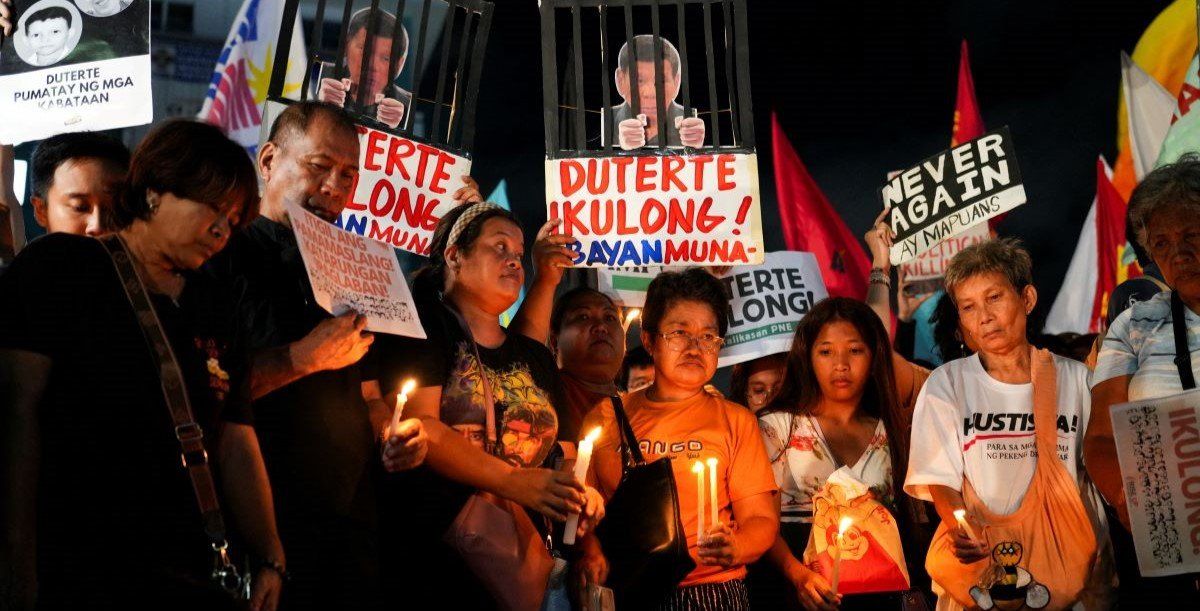Philippine authorities on Tuesday arrested former President Rodrigo Duterte in Manila on an International Criminal Court warrant for alleged crimes against humanity linked to his deadly drug crackdown. He was reportedly put on a plane headed for The Hague within hours of being detained.
Duterte’s drug war started during his 22-year reign as the mayor of Davao and ramped up after he became president in 2016. An estimated 30,000 Filipinos were killed by police throughout that period, which led the ICC to start looking into the killings back in 2018. Shortly after the court’s probe got underway, Duterte withdrew the Philippines from the ICC.
This has led to questions about the ICC’s jurisdiction. But Rutgers Law professor Adil Haque says “the court retains jurisdiction over crimes committed before the Philippines’ withdrawal in 2019.”
It is less clear, however, whether Philippine law allows him to be extradited to The Hague. And the former president still has lots of support back home, says International Crisis Group’s Georgi Englebrecht. “As of now, there are several rallies in cities in Mindanao — Davao, Cotabato, Iligan, Cagayan de Oro as well as online outcry about the decision. I think we can expect more rallies,” he said.
Will there be much political fallout? Experts do not believe serious upheaval is likely or that the arrest will have much impact on the midterm elections in May.
But one thing is clear: The massive rift between the country’s political dynasties, the Marcos and Duterte families, is alive and well.
